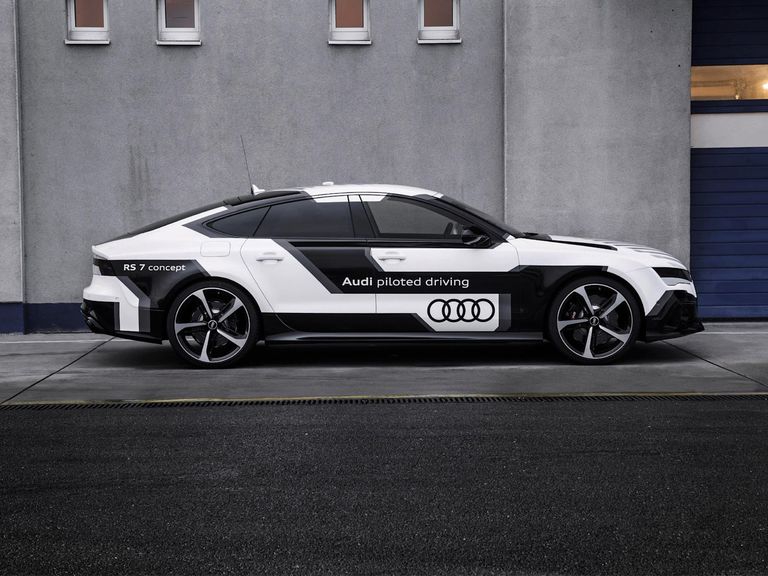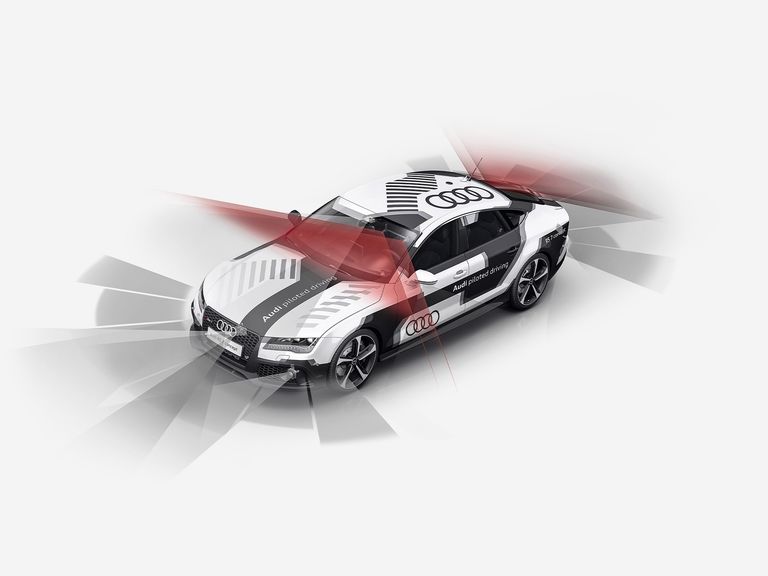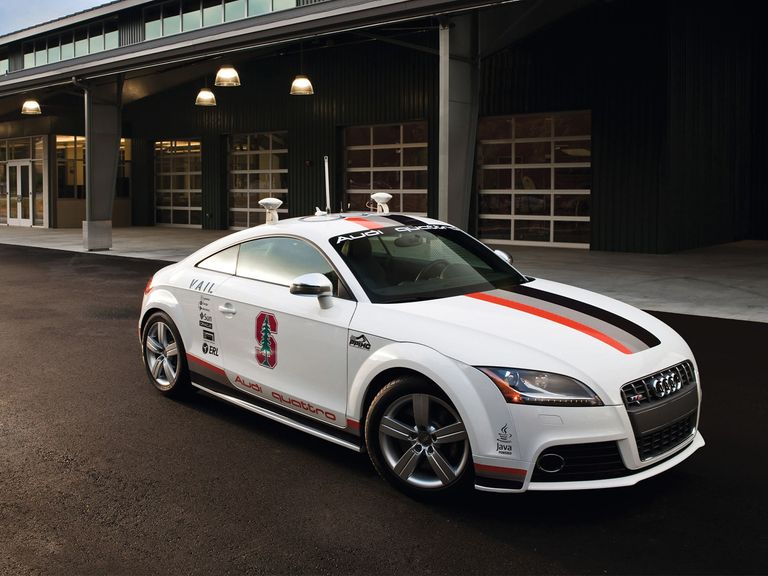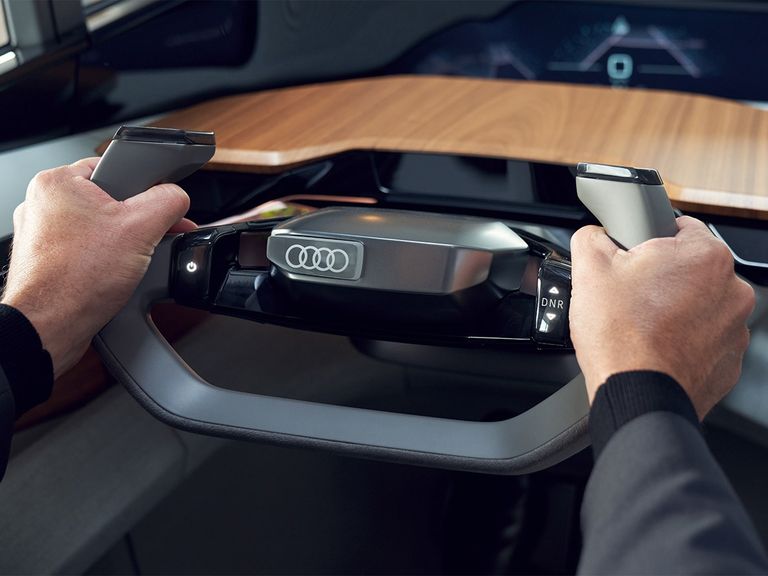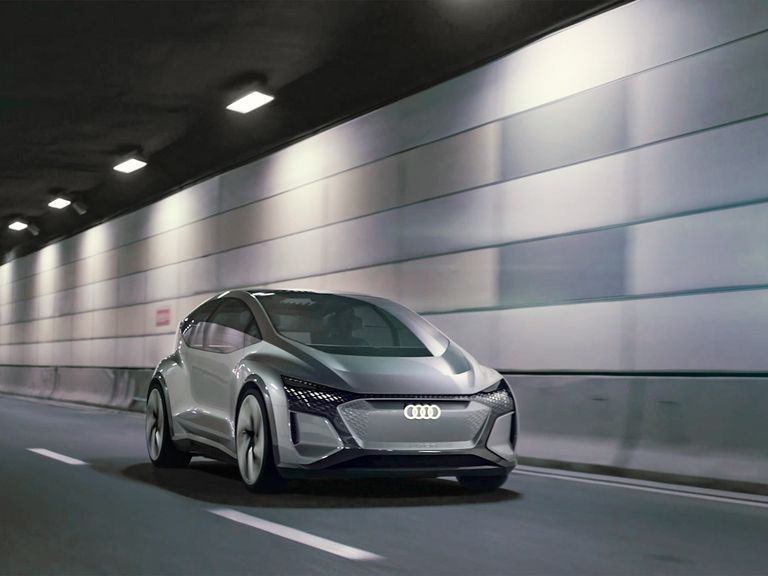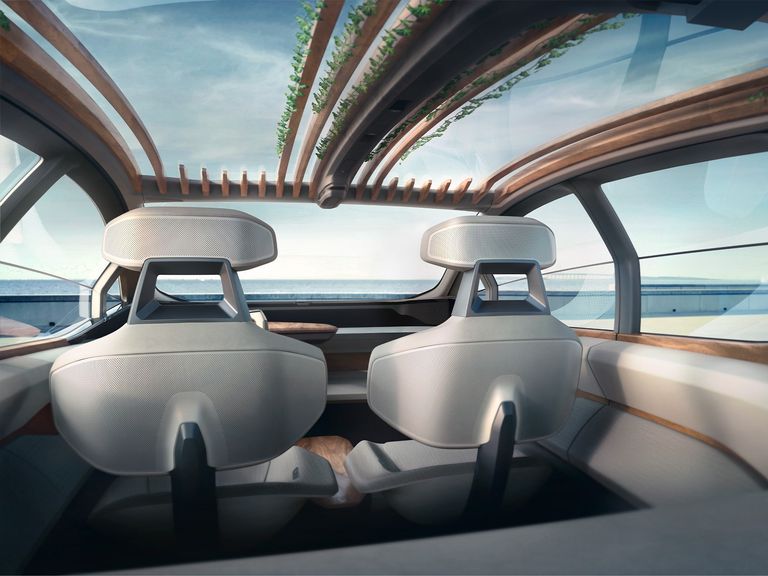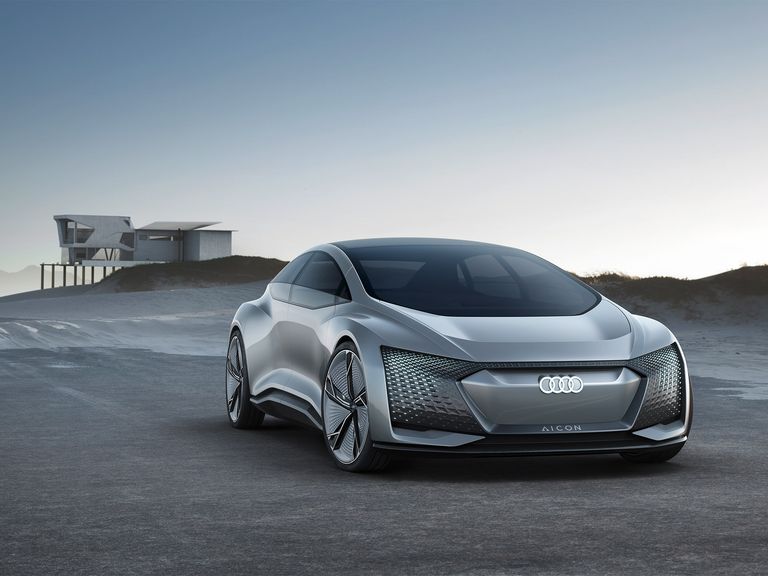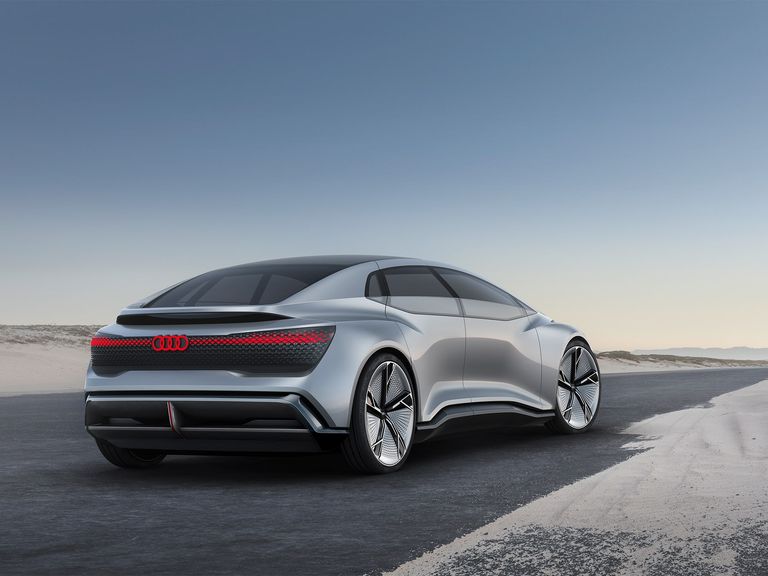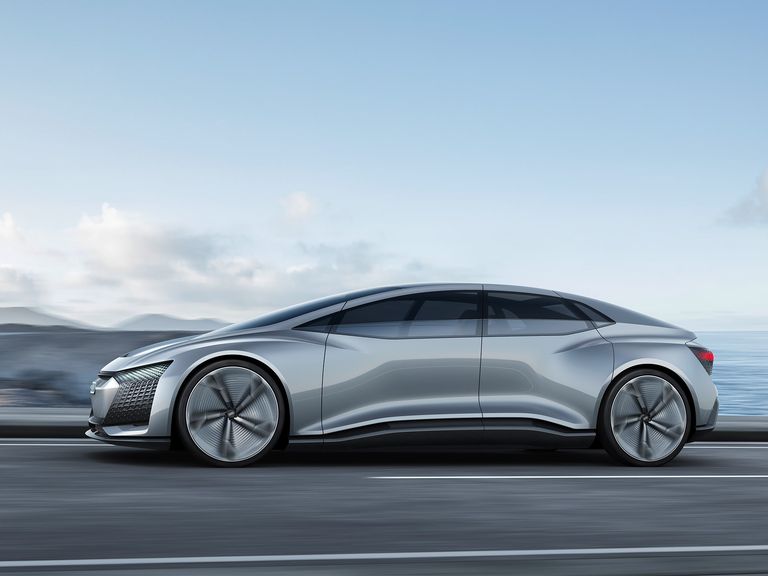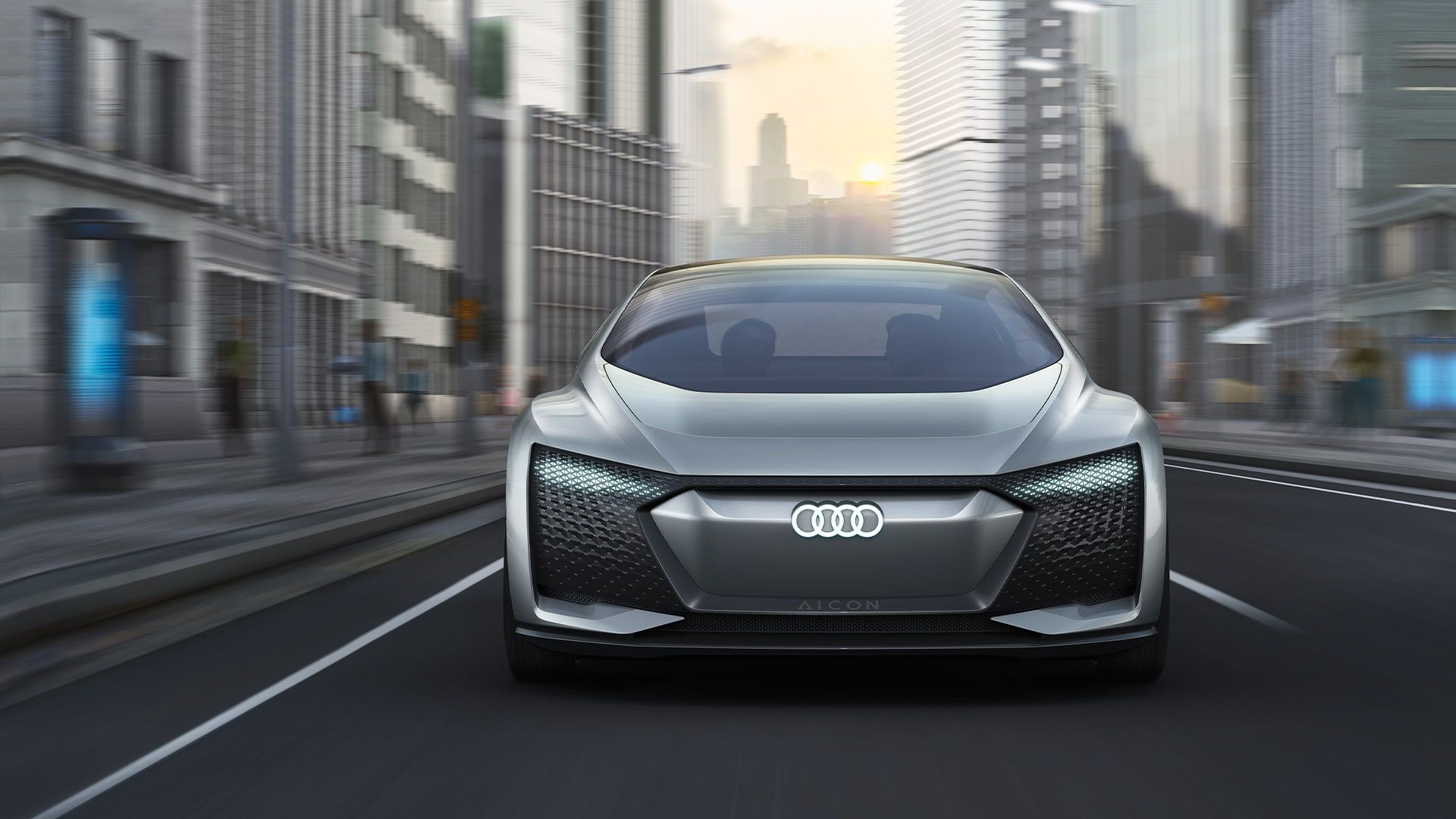To the next level
What might tomorrow’s mobility look like? And what role does autonomous driving have to play? Audi concept cars provide a preview of the future.
The vehicle shown is a concept vehicle that is not available as a production vehicle.

With the Audi AI:CON concept, Audi has presented a vision of an autonomous driving car at level 5.
With the Audi AI:CON concept, Audi has presented a vision of an autonomous driving car at level 5.
To capture and hold the interest of the very best designers and engineers, a company must give its employees space – space to dream, space to push forward, space to create the future. Audi encourages its employees to let their ideas and visions run free, to break boundaries and to develop solutions that seemed technically impossible. The automotive industry is undergoing a revolution as significant as the transition from horse-drawn carriages to mechanized power at the start of the 20th century. Inspirational engineering is the key to sustainable mobility via autonomous, connected electric vehicles.
Future is an attitude
The stunning Audi AI:ME concept showcases a not-too-distant future where fully autonomous cars will take over driving duties from their occupants. Audi has been among the pioneers in this area for many years: as far back as 2010, an Audi TTS test vehicle independently completed the Pikes Peak Hill Climb in Colorado. The car was named “Shelley” in honor of Audi rally star Michèle Mouton, who set a new record on the fearsome hill in an Audi Sport quattro S1 in 1985. A few years after the Audi TTS test vehicle’s¹ triumph, another concept car, the Audi RS 7 piloted driving¹concept, travelled at 240 kmh already.
The pulse of autonomous driving
If autonomous vehicles are to be allowed to join traffic, experts believe it could bring about major societal changes. In 2019 Audi surveyed 21,000 people as part of the study “The pulse of autonomous driving.” Participants saw the potential for both the individual and society in the new technology – from easier access to mobility (76 percent) to greater comfort (72 percent) and safety (59 percent).
Writing in the foreword of that study, Dr. Luciano Floridi, Professor of Philosophy and Ethics of Information at the Oxford Internet Institute and Director of the Digital Ethics Lab, University of Oxford, surmised: “A general conclusion that emerges from the survey may be summarized by a single word: variety. The question about the future of autonomous driving is not when or even where, but how it will take place. It will be a matter of what options, choices, and degrees of highly autonomous driving are offered to customers.”
The Audi AI:ME encapsulates a concept of fully autonomous mobility that someday may offer the potential to go far beyond the notion of mere transport. Audi AI combines vehicle intelligence, which makes automated driving possible in the first place, and interaction intelligence, which turns the vehicle into the occupants’ partner. That is where the name, Audi AI:ME, comes from, highlighting the personal connection between AI and the vehicle’s occupants. Of course, such technology is not currently available in Audi’s series models, but the Audi AI:ME¹ project gives a glimpse of the future of autonomous driving.
On another level
By comparison, differentiation is made between five different steps on the way to autonomous driving. In assisted driving at level 1, individual assistance systems either provide support in processes such as accelerating and braking or in steering. In partially autonomous driving at level 2, the support goes a step further: Certain functions, affecting both longitudinal and lateral control, can be passed by the driver to complex assistance systems. This includes a corresponding congestion assistant, which brakes or accelerates up to a certain speed, adjusted to the other vehicles. However, the driver must monitor the process and be able to step in at any time. In highly automated driving (level 3), the driver can temporarily hand over control in predefined situations completely. As soon as the system requests, they must take over the steering wheel again.
The Audi AI:ME concept is designed for what is referred to as level 4 fully autonomous driving. This means that on certain routes the system is fully in control, within its limits. If necessary, it can bring the vehicle to a stop autonomously. If the steering wheel and control elements in the Audi AI:ME are not required, the steering wheel is they are retracted in a beautifully choreographed movement. It is They are then almost fully concealed by a stowage compartment featuring a walnut surface, providing optimum space for users to relax in the Audi AI:ME’s¹ cabin.
Then comes the last step: level 5 autonomous driving. At this stage, the vehicle operates completely without a driver in all situations. With the Audi AI:CON concept, Audi has already revealed a vision for a full level 5 autonomous driving car. This luxuriously appointed vehicle represents a future where occupants could be freed entirely from the task of driving, even on long journeys.
Living on the move
But let’s return to the Audi AI:ME: Audi’s designers have created a kind of “third living space” in the interior of the concept vehicle – an autonomous, fully connected wellbeing lounge for the major cities of tomorrow. Whether users wish to catch up on e-mails, dine, relax, watch a movie, read, or even sleep, the choice is entirely theirs. The car is capable of interacting not only with its surroundings, but also its occupants. The Audi AI:ME can work out the needs and desires of its passengers through learning. For example, it can suggest ordering food from their favorite restaurant. With the help of eye-tracking, the desired food can be selected from the “wellbeing” menu displayed on a three-dimensional OLED monitor. The AI:ME will drive to the restaurant to collect the food.
Out of this world
The Audi AI:ME’s luxurious cabin represents the perfect place to relax and watch the city glide by in future. And when the desire to completely get away from it all takes over, VR goggles are on hand. They transform interactive gaming into an impressive experience that seems out of this world. When the concept car’s holoride system is activated, the vehicle’s movements, detected by a sensor system, can be integrated seamlessly into the visual core of the game. Suddenly, a feeling of being right at the heart of the action is created – and an autonomous ride across town can become the ultimate immersive gaming experience.

